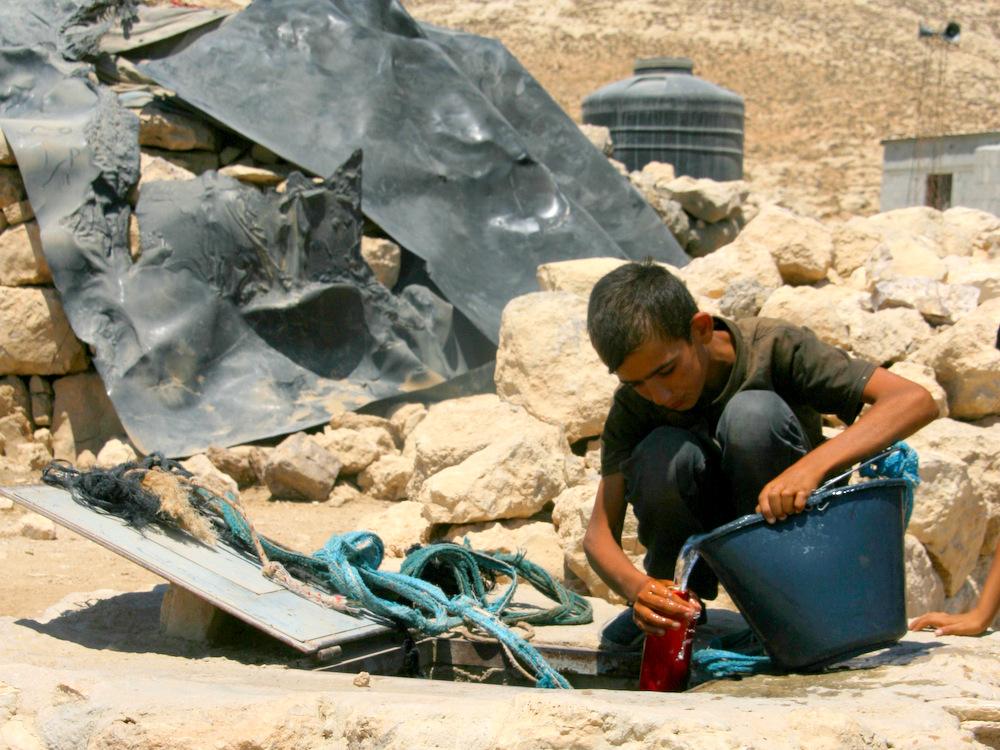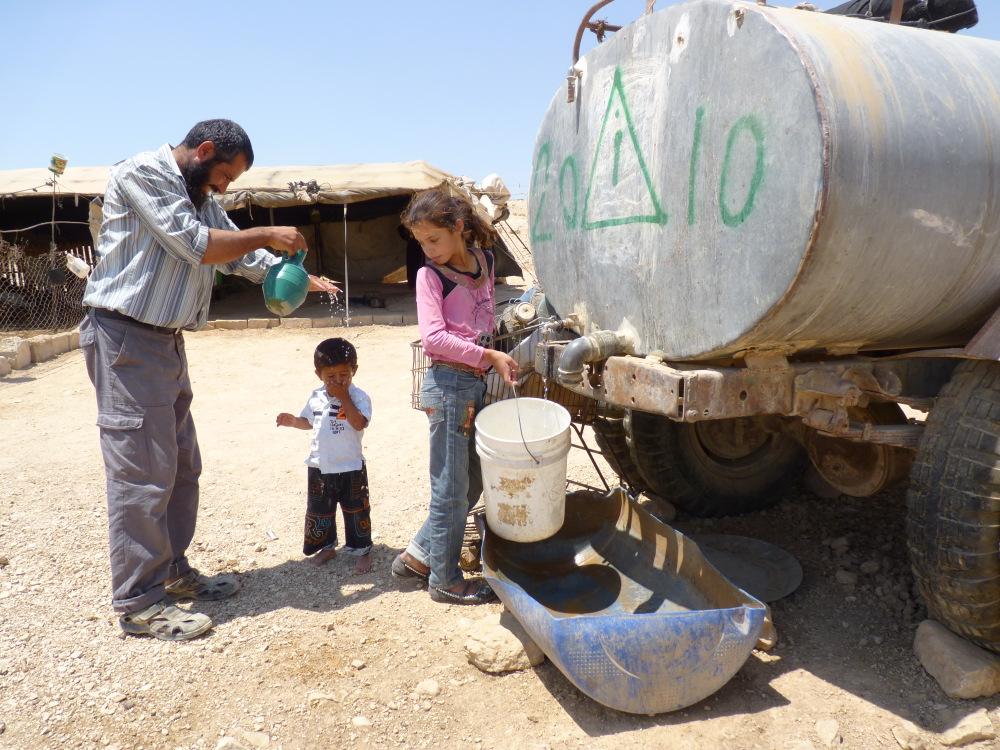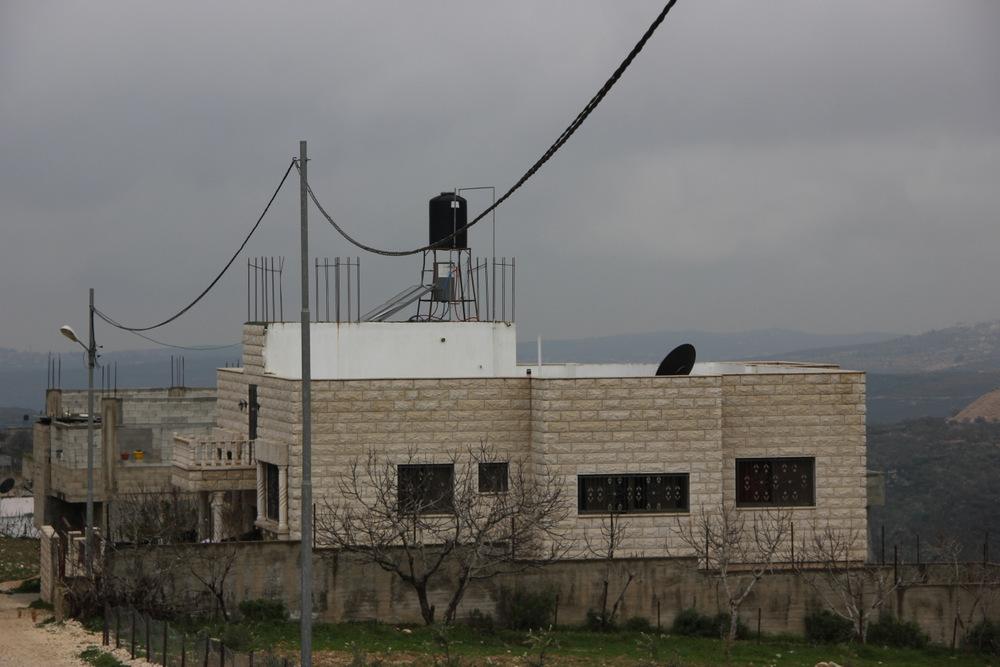Photo: Muhammad Sabah / B’Tselem
Israel’s occupation of the West Bank, East Jerusalem and Gaza has lasted over half a century, and the dire humanitarian situation is at breaking point. On the International Day of Solidarity with the Palestinian People, it is crucial to highlight the denial of water, sanitation and hygiene (WASH) to the Palestinian people, not only as a human-made political crisis, but also, as a human rights issue.
Over a decade of land, sea and air blockade on the people of Gaza by the Israeli government has “eviscerated” the economy and afflicted the day-to-day lives of 1.9 million Palestinians who live there. The reconstruction of water and sanitation infrastructure since the military attack by Israel in 2014 has been extremely slow, impeded by Israeli Government imposed limits on goods into Gaza. In addition, Military Order 158 issued by the Israeli authorities in November 1967, severely restricts the capacity of people in the West Bank to construct any new water installation without first obtaining a permit from the Israeli army. The report of the Special Rapporteur on the situation of human rights in the Palestinian territories occupied since 1967 states that the “access to safe and sufficient drinking water in the Occupied Palestinian Territory is severely compromised by the discriminatory access to hydro-sources in the West Bank, and by the depleted and contaminated water aquifers in Gaza.”

A lack of access to safe water and sanitation is a critical concern in Gaza. The groundwater from the coastal aquifer is the primary water resource available in Gaza, and the population extracts three times the aquifer’s sustainable annual recharge, which is fed only by rainfall. Over-extraction has caused a significant drop in the aquifer’s water levels, leading to increased saline water intrusion from Mediterranean Sea. What exacerbates the situation is the raw sewage run-offs into the aquifers due to the absence of adequate sewerage treatment facilities and also, contamination by nitrates from fertilisers used in agriculture. Until the 1990s, the aquifer provided Gaza’s inhabitants with drinkable tap water. However, 97% of this water is now unfit for human consumption, based on World Health Organisation (WHO) standards. This leaves people in Gaza with no choice but to purchase desalinated water from unregulated private vendors for cooking and drinking. This costs 10-30 times more than piped water, thus, increasing the burden on the poorest households.

The serious contamination of the only aquifer in Gaza poses a serious public health risk, leading to increased risk of waterborne diseases such as acute diarrhoea, parasite infections, liver and kidney diseases, and methemoglobinemia (“blue baby syndrome”). According to WHO, water-related diseases account for over one quarter of illnesses and are the primary cause of child morbidity in Gaza. The Special Rapporteur’s report also mentions a recent study on water supplies and childhood development that has drawn robust links between inadequate access to quality water availability, poverty and physical underdevelopment among Palestinian children living in 52 communities in the Occupied Palestinian Territory. Moreover, a recent study has warned, “if the chronic state of emergency in Gaza’s water and sewage sector continues, an endemic disease outbreak or other public health crisis is imminent, with the risk of it spreading to Israel and Egypt”.
In the West Bank and East Jerusalem discriminatory water policies have also resulted in water shortages for the Palestinian population. The disproportionate distribution of water from the mountain aquifer shared by Palestine and Israel has left the Palestinians with only a 14% of the water, according to the NGO B’Tselem. Many Palestinians in Israeli controlled Area C (61% of the West Bank) and East Jerusalem have installed water storage tanks in response to the lack of water infrastructure. But without a building permit, which is almost impossible for Palestinians to obtain, water tanks and other Palestinian structures are regularly demolished by the authorities.

Area C, which is home to 270,000 Palestinians, particularly suffers due to Israeli restrictions and control over WASH-related infrastructure, which is regularly subjected to “demolitions and stop work orders”. In 2017 (until end of November), the Israeli authorities demolished or seized 19 WASH related structures, including cisterns, water pipes and mobile latrines. In Area C, 95,000 people receive less than 50 litres of water per capita per day, less than half the World Health Organisation recommendation. According to Amnesty International, “Israeli settlers living alongside Palestinians in the West Bank – in some cases just a few hundred meters away – face no such restrictions and water shortages, and can enjoy and capitalise on well-irrigated farmlands and swimming pools.” In East Jerusalem, only 59% of residents are connected legally and properly to the water grid. In the Jordan Valley, too, the pattern is similar, with water disproportionately benefitting illegal settlement farms.
“Water is fundamental for life and health. The human right to water is indispensable for leading a healthy life in human dignity. It is a pre-requisite to the realisation of all other human rights.” – UN Committee on Economic, Social and Cultural Rights
To be extending solidarity with the Palestinian people in the real sense is to call out the horrific human rights violations, especially in the humanitarian context of access to safe water and sanitation. After decades of inaction, the international community must demand that the Israeli authorities put an end to the occupation and discriminatory policies, which deny Palestinians their human right to water in the occupied territory.